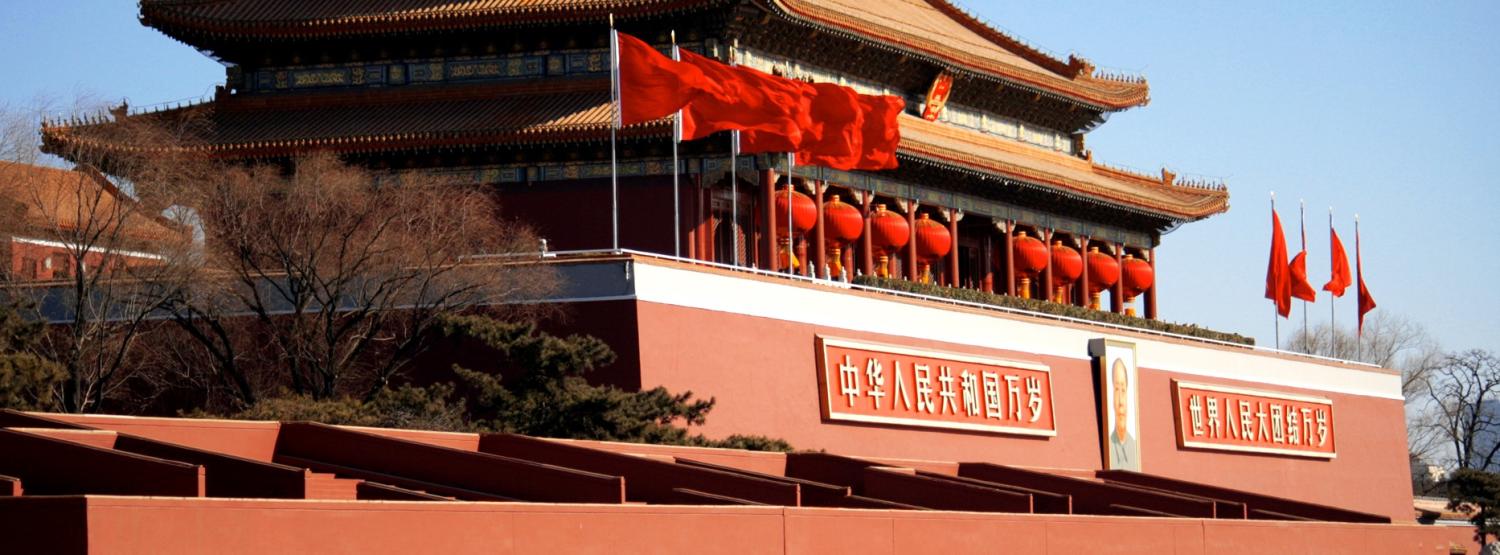It’s difficult to see any future for Australia that does not involve China in a big way, whether it is in trade, services, investment, regional security, cultural exchange, and migration. It follows that ensuring a secure and prosperous future for Australia means getting the relationship with China right.
Understandably, therefore, Peter Drysdale and John Denton are anxious that we get the relationship right. A long-overdue debate on Australia-China relations is under way, and in their recent opinion piece in the Financial Review, Drysdale and Denton claim to detect in this debate a concerted effort to demonise China and paint the entire Chinese-Australian community as treacherous. They trace this demonisation to deep and gnawing anxieties about the US alliance in the Trump era. They prescribe a remedy of an evidence-based public debate that is free from insinuation and false dichotomy.
If their claims had merit there would be a case to answer. Do they have merit?
Drysdale and Denton claim recent coverage of Chinese influence in Australia carries the implication that the entire Australian-Chinese community is a ‘dagger’ pointed at the heart of Australian democracy. If this is the case then the insinuation needs to be remedied immediately. But where does the insinuation come from?
The investigative journalism driving this debate has made a number of specific and contestable claims about a handful of named business people. It has traced the institutional connections linking these people with Beijing. And it has shown that a number of their demands relate not to their business interests but to advancing China’s national interests in Australia and the region. None of the articles or programs has insinuated anything about the alleged treachery of the wider Chinese-Australian community. In this case, the insinuation appears to lie with the authors.
Key programs, including the Four Corners episode 'Power and Influence', explicitly affirm the Chinese-Australian community to be this country’s greatest asset in dealing with a resurgent China. A number of Chinese-Australians were interviewed for that program, as they have been in many of the depositions in the current debate. Chinese Australians are essential participants in this country’s conversations about China, not passive objects in need of protection by influential thought-leaders in Australian business and policy circles.
There are, to be sure, irresponsible outliers. Among several hundred articles and programs that have spun off the investigative efforts of journalists in recent years, I have come across three opinion pieces in the mainstream media that criticised the broader Chinese-Australian community. In local Chinese language newspapers I have seen a comparable number of irresponsible opinion pieces declaring that Chinese-Australian loyalties lie first with Beijing. These kinds of opinions belong on the margins of any rational, evidence-based debate.
In tracing the alleged demonisation to deep and gnawing anxieties about the US alliance in the era of Trump, Drysdale and Denton also have their timing off. This debate was under way well before Trump took office. Earlier investigative reports and internal government reviews were prompted neither by Trump nor the US alliance but by mounting evidence that Chinese government behaviour was placing Australian sovereignty at risk.
By 2015 it was already clear that the Chinese Government was buying up, controlling and censoring Chinese community media in Australia, that it was compromising the ABC’s Chinese language news services, that it was recruiting (and paying) senior Australian political and business leaders to do its bidding, and that it was setting up propaganda arms within Australian universities. The press reported on these infringements of sovereignty at the time.
Further evidence that this debate goes back well before Trump can be found in legislation scheduled to go before parliament this year on espionage, foreign agent registrations, and political donations. It would be a stretch to imagine that complex and sensitive legislation of this kind could have been researched, advocated for, proposed, drafted or brought to parliament without several years of intensive preparation. The legislation has nothing to do with Trump, nor does it exclusively target China. It is targeting Australia, remedying weaknesses in Australian democracy and limiting the scope for faults in Australian policymaking.
Drysdale and Denton make a further claim that the long-recognised distinction between liberal democracy and totalitarianism is a ‘false dichotomy.’ They describe this as 'Cold War thinking'. Yet for Australia, the issue at stake is not whether Leninism and liberal democracy can work happily and co-operatively in their separate jurisdictions but whether it is possible for a democracy to maintain jurisdictional separation in a dependent relationship with a Leninist state without adjusting its everyday modes of operation. Whatever we may think of authoritarian Leninist states, of which contemporary China is clearly one, they are founded on an ‘enemy mentality,’ and they have immense difficulty recognising the territorial and jurisdictional limits of their overweening hierarchical authority. How is a liberal Australia to deal with a Leninist China as that country becomes more assertive beyond its borders?
A bold free press is one of the few instruments a democracy has at its disposal to check the encroachment of a Leninist state into its jurisdiction. An open, respectful, and evidence-based conversation on this encroachment in the media is essential to getting Australia’s relationship with China right.
It is not demonising China to report what the Chinese government says about itself: that it is a wealthy and powerful Communist Party state that has no time for democratic accountable government, no independent courts, security, or media, that denies universal adult political participation, that offers no protection for the exercise of fundamental rights of freedom of speech, religion or assembly. In China this is called guoqing. There are no plans to change anytime soon. Similarly, querying the behaviour of a few named and alleged influence peddlers from China no more tarnishes the reputation of all Chinese Australians than querying the conduct of Putin’s agents in Washington impugns the loyalty of all Russian Americans.
In sum, the claims made by Drysdale and Denton have no merit. There is no case to answer.

